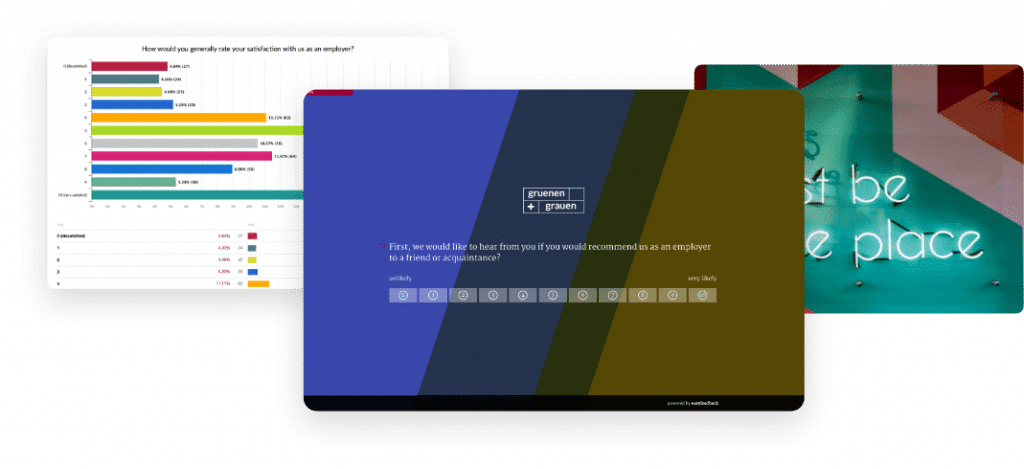Employee survey: What is allowed and what is not
With easyfeedback, you get a professional survey tool for creating, conducting and evaluating employee surveys in all areas of personel development and management.


Solutions / Employee Survey / Employee survey: What is allowed and what is not
When conducting an employee survey, there are legal and ethical guidelines that must be followed to respect the rights of employees and ensure a fair and transparent process.
Here are some aspects that are allowed and not allowed:
What is allowed?
1st aspect: Voluntary participation
Employees are free to decide whether or not they wish to take part in the survey.
Pressure or coercion to participate is not permitted.
2nd aspect: Anonymity
The survey can be conducted anonymously to allow employees to give honest feedback without fear of repercussions.

3rd aspect: Protection of personal data
Employees’ personal data must be protected in accordance with the applicable data protection regulations.
This includes the storage, processing and disclosure of data.
4th aspect: Transparency
Employees should be informed transparently about the purpose, objectives and procedure of the survey.
5th aspect: Equal treatment
All employees should have the same opportunity to take part in the survey, regardless of their position in the company or other personal characteristics.
What is not allowed?
1st aspect: Discrimination
The survey may not be used to discriminate against employees on the basis of gender, age, ethnicity, religion or other protected characteristics.
2nd aspect: Violation of data protection
Employees’ personal data may not be used without consent or in a way that violates data protection regulations.

3rd aspect: Intimidation or harassment
Employees must not be intimidated, harassed or discriminated against if they choose not to participate in the survey or express certain opinions.
4th aspect: Abuse of the results
The results of the survey must not be used to disadvantage or discriminate against individual employees.
Instead, they should be used to drive improvements within the company.
Further information


